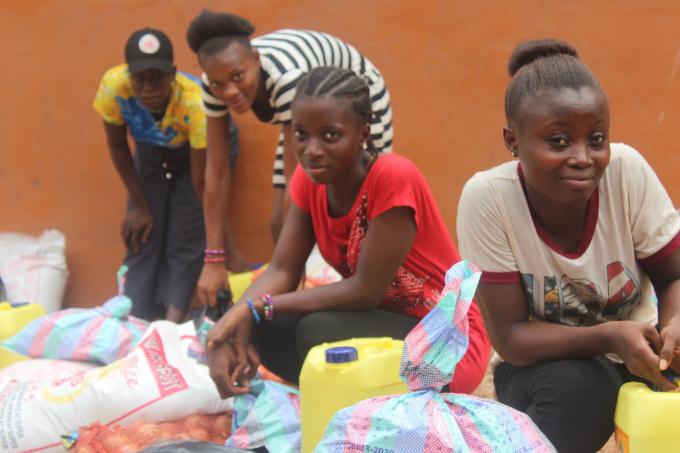Reducing the risks surrounding teenage girls amidst COVID 19 pandemic

Beneficiaries in Dwazark receiving Save the Children COVID-19 Emergency Response packages. Photo credit: Abdul Sillah.
“I thank Save the Children for what they have done for me today. This donation will help me a lot. Because of this, I will not be tempted to join bad friends or go out in the streets to find food because I have it enough in my house.”
COVID - 19 has taken the world by storm and is now the main focus and concern for everyone globally. It is in times like these that children become more vulnerable to abuse and exploitation
The Ebola epidemic left thousands of girls with emotional scars from which they are still healing. During the epidemic teenage pregnancy increased by 65 percent leaving about 14,000 girls pregnant.
In a study conducted by Save the Children and other organizations, children revealed that a major contributor to teenage pregnancy was forced transactional sex by vulnerable girls to meet basic daily needs for them and their families.
To minimize this risk during this pandemic, Save the Children Sierra Leone is supporting over four hundred and one girls in Twenty (20) communities in the Western Urban and Rural district with food and non-food items.
The four-day exercise (19 – 23 April) provided a package containing 25 KG of rice, bag of Onions, Cooking Oil, Sugar, Powdered milk, Sardines and Laundry soap Powder.
A 17-year-old teenage mother at Kanikay, the east end of Freetown was grateful for the donation and noted it timeliness.
She said survival has been a real challenge for the entire family since her uncle who used to sustain the home lost his is job as a result of COVID – 19.
“Right now, everything has shutdown. I was about to take the Basic Education Certificate Examination (BECE) but because of the coronavirus, we are now sitting at home,” she said.
I thank Save the Children for what they have done for me today. This donation will help me a lot. Because of this, I will not be tempted to join bad friends or go out in the streets to find food because I have it enough in my house”
 Sierra Leone
Sierra Leone